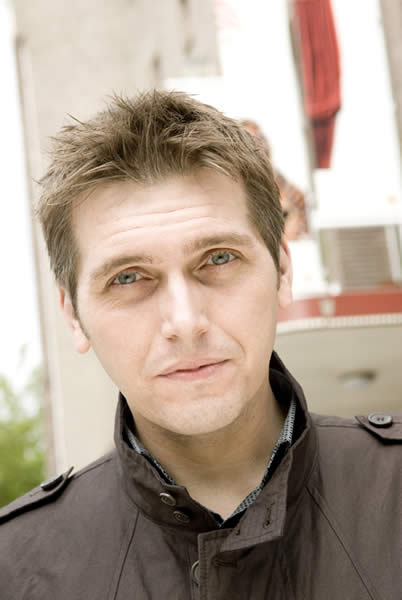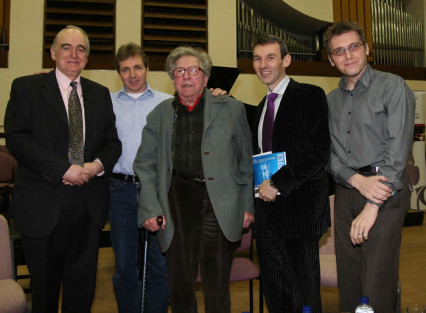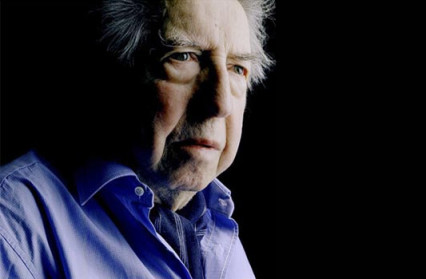BBC Hoddinott Hall, Cardiff, 27 January 2016
BBC National Orchestra of Wales
Conductor – Pascal Rophé
Soprano – Elizabeth Atherton
Eric Tanguy – Affetuoso, ‘In memoriam Henri Dutilleux’
Julian Anderson – Shir Hashrim
Thierry Pécou – Les liaisons magneétiques
Kenneth Hesketh – Graven Image
Henri Dutilleux – Le temps l’horloge
If you would not feel the horrible burden of Time that bruises your shoulders and bends you to the earth, you must be drunk without cease. But how? With wine, with poetry, with virtue, with what you please.
Charles Baudelaire, ‘Enivrez-vous’ (‘Be drunk’ from Petits Poèmes en Prose, 1869)
It is very poignant that the final song in Henri Dutilleux’s last published piece, Le temps l’horloge (‘Time and the Clock’), should be his only setting of Baudelaire; the poet who had been perhaps the profoundest influence on his own, passionately meticulous art. The state of drunkenness that Baudelaire advocates is bittersweet, and Dutilleux’s rendering of these words into music of remarkable colour, wit and dignity at the end of his long life seems especially apt as summation. The entire, five-section cycle, also setting words by Jean Tardieu and Robert Desnos, is a celebration of the mystery of life shot through with the composer’s characteristic ambivalence towards an ungraspable present and an unknowable future. On the one hand, time is mechanical; a ticking clock inexorably pressing forwards. On the other hand, time is an illusion, and nowhere is it more tyrannical than in contemplation of the past, as memory becomes a kind of haunting – the burden to which Baudelaire alludes. To enter or induce a state of ecstacy – or drunkenness – is to free oneself from that burden so that a deeper mystery may be apprehended. For Dutilleux, this notion was not to do with wantonness but rather an artistic striving in which, as he once put it to Roger Nichols (pictured below), ‘asceticism has a distinct role to play, the artist has to renounce so many things, so many pleasures; and in any case he’s not happy unless he can find the opportunity to realise his true self.’
Dutilleux often stated that he regretted not having written more vocal music, but he was aware that his perfectionism and slowness of working would have made writing an opera, say, impractical to say the least. However, here at Hoddinott Hall, I’m sure I wasn’t the only audience member to share that regret amidst the joy of hearing this gem of a piece so convincingly performed. With the exceptional playing of the BBC National Orchestra of Wales under conductor, Pascal Rophé, together with the lovely musical intelligence of soprano, Elizabeth Atherton, the work glowed with a vigour belying the advanced years of its composer. Not a note is wasted in Le temps l’horloge (2006-9), nor a vocal inflection or colour ill-judged; the inclusion of accordion and harpsichord lent a piquant humour almost redolent – dare I suggest – of Poulenc to an already sumptuously Gallic, post-Debussyan soundworld. Written for the American soprano, Renée Fleming, the work originally comprised three movements, with the Baudelaire setting and a preceding orchestral interlude added during the following two years, when Dutilleux was already past 90.

This concert, organised in collaboration with the Cardiff University School of Music, formed an eloquent tribute to the composer in his centenary year, and to his importance for a generation of French and British composers, now long established in their own right. Leading up to Dutilleux’s superb cycle we heard pieces by four who knew him from Tanglewood in the US and/or elsewhere: two British and two French composers, of whom all bar Kenneth Hesketh were present in the hall.
Eric Tanguy and Thierry Pécou both featured in the first half. Tanguy’s Affetuoso, ‘In memoriam Henri Dutilleux’ was written upon news of Dutilleux’s death in 2013, but seeks to honour him through thanksgiving rather than grief. Building from a chorale-like opening to a strongly three-in-a-bar, ‘affectionate’ tumult, Rophé drove the piece to its third and final climax with a riotous orchestral blaze. By contrast, Pécou’s two-part Les liaisons magneétiques (‘The Magnetic Connections’), closed the half in an idiom of wide-ranging influence that owed as much to Milhaud and the Stravinsky of The Soldier’s Tale as it did to more lyrical French writing. Here the instrumentation comprised a chamber ensemble of six wind, two percussion and nine strings, with a variety of grunts and growls off-set by glissandi, harmonics and a pounding, animalistic bass drum.
Julian Anderson’s Shir Hashrim proved the highlight of the half, sandwiched between the two Frenchmen. The work, written in 2001 and dedicated to Dutilleux on his 85th birthday, is a setting, in Hebrew, of the Song of Songs for soprano and chamber orchestra. Here, Atherton and musicians were luminous in conveying this seductive score, with its lush colouration and trailing vocal melismas. Now shimmering from within a lake of rippling reflections, now a comet with a fiery, harmonic tail, the soprano was by turns semi-engulfed by and ringing clearly above Anderson’s rich, surging textures. The effect was both magical and strongly rigorous, as might be expected from one of the most respected and admired composers in the UK today.

Of course, for any composer, the manipulation of time is stock-in-trade. Whilst Le temps l’horloge demonstrated a clear high point of mastery, impeccably balancing form and content, Hesketh’s Graven Image which preceded it was impressively assured in its forward momentum and interplay of foreground and background, transparency and saturation. There is no ‘narrative’ to the piece as such, which was inspired by the medieval device of memento mori, in which the portrait of a living person is counterbalanced by depiction of their skull in reference to the transience of life. Nonetheless, Hesketh’s score conveys a rich sense of journeying through layered timbres which build and then subside without unravelling or draining the underlying harmonic and motivic tensions. The result is as subtly dark as it is exultant, and Rophé’s BBC NOW gave the piece a compelling reading. Hesketh has spoken of being transformed by his encounters with Dutilleux. I can think of no finer centenary tribute to the distinguished composer than this exciting piece, which led us into Dutilleux’s ‘Time and the Clock’ through its own dynamic reflections on mortality.
The concert was recorded for March broadcast on BBC Radio 3’s Hear and Now.
Header photo of Henri Dutilleux © gontiermusic.com











